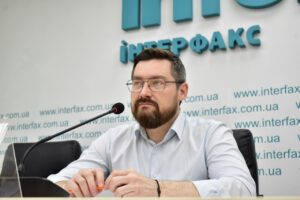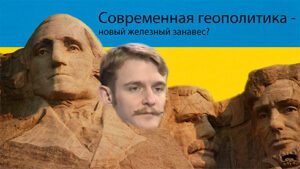
This article presents key macroeconomic indicators for Ukraine and the global economy as of February 1, 2025. The analysis is based on current data from the State Statistics Service of Ukraine, the National Bank of Ukraine, the International Monetary Fund, the World Bank, and the UN. Marketing and Development Director at Interfax-Ukraine, Maksim Urakhin, PhD in Economics and founder of the Experts Club information and analytical center, presented an overview of current macroeconomic trends.
Macroeconomic indicators of Ukraine
In 2024, Ukraine’s economy showed signs of recovery despite the ongoing war and unstable geopolitical situation. According to updated data from the State Statistics Service, Ukraine’s real GDP grew by 3.3% in 2024, while nominal GDP amounted to approximately UAH 8.3 trillion. The deflator index was 11.6%.
“GDP growth demonstrates the resilience of the Ukrainian economy. Sectors focused on exports, domestic consumption, and infrastructure restoration have become the drivers of growth,” comments Maxim Urakin.
As of January 2025, annual inflation accelerated to 12.9%. Consumer prices rose by 1.2% in January compared to December, reflecting seasonal increases and currency stability.
According to the State Statistics Service, at the end of 2024, exports of goods amounted to $43.8 billion (+13.4%), imports to $67.4 billion (+5.7%), and the negative foreign trade balance to $23.6 billion.
“Despite high imports, primarily of energy and equipment, export activity is growing. Ukraine is strengthening its position in the agricultural and metallurgical markets,” says Maksim Urakyn.
As of February 1, 2025, according to the Ministry of Finance, Ukraine’s state and state-guaranteed debt amounted to $146.7 billion, including $100.1 billion in external debt. According to the National Bank of Ukraine, international reserves reached $45.3 billion, increasing by $400 million in January thanks to inflows from the EU and the IMF.
“The record level of reserves strengthens the stability of the hryvnia and allows the NBU to control currency fluctuations,” the economist emphasizes.
Global economy
According to the IMF’s January update, global economic growth in 2024 was 3.1%, with a forecast of 3.2% for 2025. Developing countries remain the main drivers, despite global instability.
According to the Bureau of Economic Analysis, the US economy grew by 2.5% in 2024. In January 2025, inflation stood at 3.1% year-on-year, with the Fed keeping its rate at 5.25-5.5%.
According to revised Eurostat data, the eurozone’s GDP grew by 0.4% in 2024, while inflation stood at 2.8% in January 2025. Germany, the EU’s largest economy, contracted by 0.1%, while Spain and Portugal made positive contributions to overall growth.
“Geopolitics, high borrowing costs, and weak demand in the G7 countries continue to hold back the recovery. Strong consumer demand is supporting the US economy. However, expensive credit is holding back investment activity, especially in real estate. The Chinese economy needs new stimulus, including tax reforms and support for small businesses, to offset the decline in investment in the construction sector,” Urakin explains.
The Indian economy continues to grow steadily: 8% in 2024, according to preliminary data from the Indian Ministry of Finance. The country is strengthening its position in global supply chains and increasing domestic production.
According to official statistics, China’s GDP grew by 5% in 2024. However, growth in the real estate sector remains weak and domestic demand is limited, which is holding back expansion potential.
Conclusion
The macroeconomic picture at the beginning of 2025 reflects a difficult but stable situation both in Ukraine and globally. Domestic GDP growth, slowing inflation, and strengthening reserves are positive signals for Ukraine. The global economy, in turn, is showing cautious growth amid continuing challenges.
“The key priorities for Ukraine remain ensuring macroeconomic stability, growing high value-added exports, accelerating digital transformation, and implementing structural reforms. This will enable the country to strengthen its position in the international economy as early as 2025,” concludes Maksim Urakin.
Head of the Economic Monitoring project, Candidate of Economic Sciences Maksim Urakin.
A more detailed analysis of Ukraine’s economic indicators is available in the monthly information and analytical products of the Interfax-Ukraine agency, Economic Monitoring.
Source: https://interfax.com.ua/news/projects/1072123.html
ECONOMY, EXPERTS CLUB, GDP, GEOPOLITICS, MACROECONOMICS, URAKIN

According to political scientist Daniil Bogatyriov, in recent weeks, international relations are characterized by an escalation in confrontation between various centers of power.
According to the expert in international affairs, the beginning of not one, but two cold wars is characteristic of the current geopolitical situation in the world: between Russia and the United States in Eastern Europe and between China and the United States in Southeast Asia.
“For example, a recent meeting of the representatives of the U.S. Department State and the Chinese Foreign Ministry in Alaska only exacerbated contradictions between the countries. At the end of the meeting, unambiguous confrontational statements were made. The American side expressed to the Chinese one claims about the violation of human rights in Hong Kong and Xinjiang Uygur Autonomous Region, the increasing pressure in Taiwan. The Chinese, in turn, pointed to the facts of human rights violations in the United States during the suppression of the BLM protest movement,” Bogatyriov said.
According to the political scientist, a similar level of confrontation has also been achieved between the United States and the Russian Federation.
“Today we see attempts to eliminate internal opposition in Russia and Belarus. Thus, the Russian authorities have launched a process to recognize the structure of Alexei Navalny (the Anti-Corruption Foundation) an extremist organization. It is no coincidence that the so-called conspiracy of the opposition intelligentsia has been uncovered in Belarus just now,” the expert said.
He noted that all these processes in the future may lead to the formation of the phenomenon of “large spaces” in various regions of the world, which will in fact be zones of direct influence of one or another large state.
“We are entering the world of “large spaces,” the world of zones of influence, where a cold war will flare up between them and in the future serious restrictions on the movement of citizens and any other cross-border activities are not ruled out. Such things will be possible only within the framework of their large space, that is, this will lead to the lowering of the very real “iron curtain,” as it was in the last cold war,” Bogatyriov summed up.
You can watch the full video on the Experts’ Club YouTube channel.
You can subscribe to the Experts’ Club channel here

Kyiv is standing in front of building a complicated, but necessary dialogue with Warsaw, which has reached a dead end in recent years. It is fair to say that both sides derailed the relations between Ukraine and Poland, however, this does not mean that Kyiv should wait for a full or partial reboot of the government in the neighboring country, moreover, this may not happen, according to political expert Valentyn Haidai.
“We should not forget that in both cases with Poland and with Russia one should differ between sociopolitical and economic dialogues. It is no secret that under conditions of political confrontation between the Ukrainian and Russian elites trade and economic cooperation between the two countries is growing. We can see the same situation in case with Poland,” Haidai said in a program on the Expert Club YouTube channel.
In the expert’s opinion, there is no especial confrontation between the political elites of both countries. Poland and Ukraine do not have any territorial disputes, despite the desire to revise the borders by certain marginal circles, or a sharp conflict related to humanitarian policy, as in the case of Hungary.
“Speaking about economic cooperation, it should be noted that it was estimated at more than EUR 7 billion at the beginning of this year, which is EUR 2 billion more than in 2015, and it continues growing even during the coronavirus pandemic. Ukrainian export to Poland has increased, just the same as Polish import to Ukraine did. An increase in trade, in particular, was registered in the following segments: mineral fertilizers, textile, mechanical and electric equipment, animal fat and metal goods. In addition, Ukraine is one of the largest recipients of Polish food. According to Statistics Poland, export of agricultural goods to Ukraine has grown by more than 20%,” the political expert said.
As of the end of 2019, more than 400 joint enterprises operated in Ukraine and Poland in machine building, consumer goods and food industry, agriculture, etc. Cultural and scientific cooperation continues. Poland, which has a range of grant and scholarship programs, including the Eastern Studies, Stipend for Young Researchers and Krzysztof Skubiszewski Scholarship programs, is traditionally preferred by Ukrainian school graduates, postgraduate students and scientists.
“The problem is that if liberal Trzaskowski won, it is highly probable that Warsaw would take a step forward towards the normalization of relations with Kyiv on its own, while after the victory of conservative Duda in the presidential election the search for compromises was put off,” Haidai said.
The full interview is available on the Expert Club YouTube channel